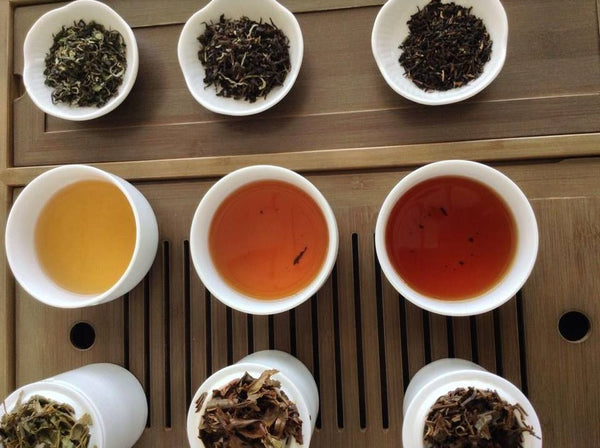
Tasting Water for Tea
After the tea leaf itself, water is the second most important element in making a good cup of tea. The fact hardly needs to be stated, but then sometimes it is helpful to state the obvious. Especially when we often overlook the familiar, water in this case.
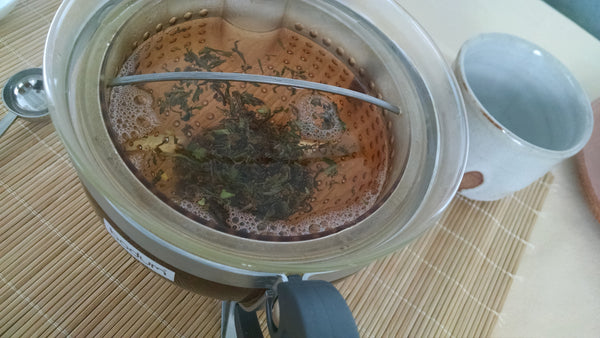
We advise our customers to use either bottled water or filtered water while preparing teas. To create that smooth balanced cup it is important to be mindful of the quality of the water you are using to make tea.
I did an exercise I had not done in a long time - tasting water. I took “samples” of tap water, bottled water and filtered water, waters that are available to me daily here in Rochester, NY. I noted the difference in their tastes. Aside from just finding out the best water for your tea, tasting water can also be a good centering exercise. Focusing something that taste “neutral” actually brings out a lot of different sensations, a good way to hone your senses.
Water from my Brita-filter is odorless and tastes clean, good enough for brewing my favorite teas. The bottled water - I am using Gerber’s 1 gallon jars that I normally use for tea tastings - actually has a faint hint of the plastic. Perhaps it had been sitting around for too long or had been exposed to heat? It does not taste much different than the filtered water though. But the smell is off putting and I don’t think I will be using that water again.
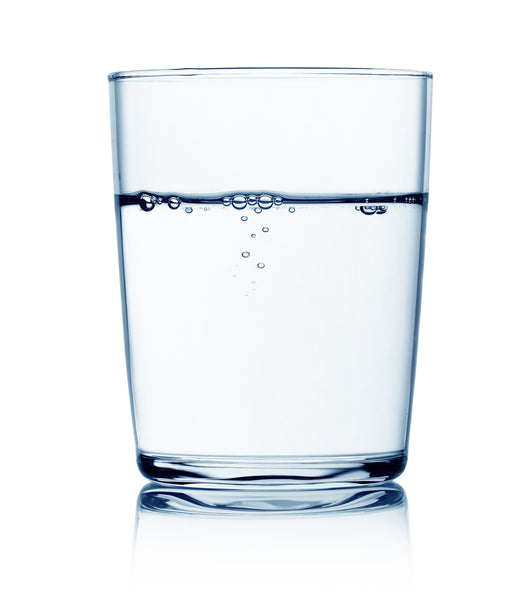
To my great surprise, the tap water surprisingly makes a good show. Perhaps during winter the water authorities had reduce the amount of chemicals used for treating and disinfecting the water. I have to verify that but the chlorine smell is relatively negligible compared to the summer months. Overall the tap water tastes pretty good and I wonder if it is stray occurrence. I remember tasting the tap water a few days ago, and it sat rather flat on my palate. Today I don’t feel it. And I ask my wife to drink the water - she has a keener palate than mine - and she too is surprised how clean tasting the tap water is today.
I think the fact is water needs to be tasted regularly. I think it is a good habit to have a sip of water before making tea. This is a good exercise to being mindful. Tea after all is about being calm yet alert, and it starts with the process of making the tea itself.
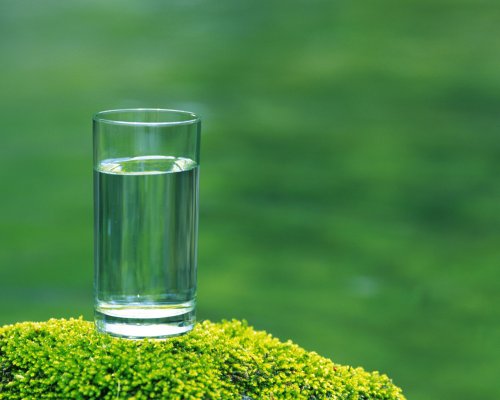
On the subject of water I like the story of told of Lu Yu, the author of Classic of Tea written during the Tang Dynasty in the 8th Century. One day Lu Yu was in an excursion with a patron who was an army general. In the course of their wanderings they stopped by a river for some tea. Lu Yu instructed the soldiers to fetch some water from the river's mid-stream so that he could make tea. When the soldiers returned with a pitcher of water Lu Yu tasted some and disapproved, saying this water had been drawn from the river side and not from the middle. The nervous soldiers told him that was not possible because they had rowed to the middle of the river and drawn water from there.
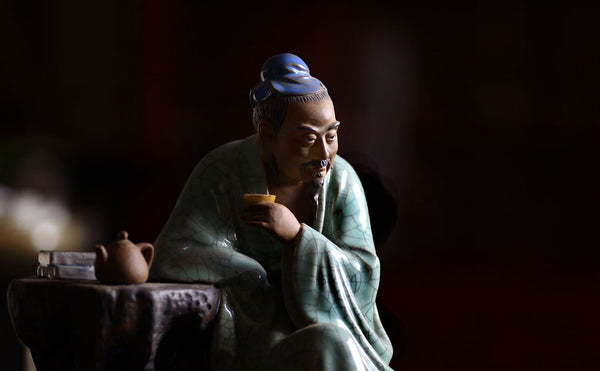
Lu Yu took a few sips more. He was not happy. Then he poured out half the pitcher, and he tried to taste again. You can imagine the tension in the air by this time, as the general and his retinue gathered around. This time, however, Lu Yu, with a very pleased look on his face, declared that the water was from the middle of the stream!
Even as the crowd puzzled, the soldiers came forward and admitted that they had indeed drawn a full pitcher of water from the middle of the river. But when they were getting off the boat some of the water had spilled and instead of going back to the middle, they had filled up the pitcher with the water from the riverside.
